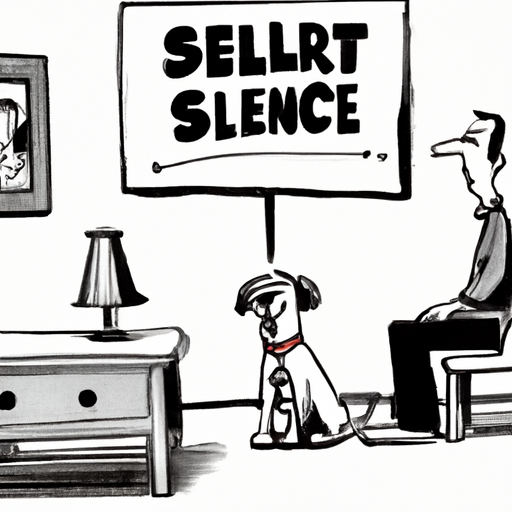Dogs bark; it’s a natural part of their behavior. However, excessive barking can be a nuisance and a sign of underlying problems. If you’re a caregiver looking for ways to understand and manage your dog’s barking, you’re at the right place.
Understand Why Your Dog Barks
First, you need to understand the reasons behind your dog’s barking. Dogs bark for various reasons:
- Warning or alert
- Playfulness or excitement
- Anxiety
- Boredom
- Seeking attention
Look for patterns that can help you understand why your dog is barking. Once you know the cause, it’s easier to find a solution.
Train Your Dog to Be Quiet
Training your dog to be quiet requires patience and consistency. Here’s a step-by-step guide:
- Begin by saying “Quiet” when your dog starts barking. Make sure to say it firmly but gently.
- If your dog stops barking, reward them with a treat or praise.
- Repeat this process regularly until your dog associates the command “Quiet” with stopping barking.
Remember, it’s important to be patient and consistent with your training.
Use Distraction Techniques
Sometimes, distracting your dog can help stop the barking. Here are a few techniques you can try:
- Give them a toy to play with.
- Play some soft music or white noise.
- Get your dog to do some physical exercises.
Remember, the goal here is to redirect your dog’s attention from whatever is causing them to bark.
Provide Plenty of Exercise
A tired dog is a quiet dog. Regular physical activity can help reduce excessive barking caused by energy overflow or boredom. The amount of exercise required may vary depending on your dog’s breed, age, and health.
| Breed Type | Recommended Exercise Time |
|---|---|
| Small Breeds | 30 minutes |
| Medium Breeds | 1 hour |
| Large Breeds | 1-2 hours |
Offer Mental Stimulation
Just like humans, dogs need mental stimulation too. You can provide this by:
- Teaching new tricks or commands.
- Providing interactive toys or puzzles.
- Having regular playtime sessions.
Consider Professional Help
If your dog’s excessive barking continues despite your efforts, consider seeking help from a professional dog trainer or a behaviorist. They can provide additional strategies and insights tailored to your dog’s specific needs.
Frequently Asked Questions (FAQs)
1. Is it bad to yell at your dog for barking?
Yes, yelling can make your dog feel more anxious or excited, leading to more barking. Instead, use a calm and firm voice when correcting your dog’s behavior.
2. Can barking be a sign of pain in dogs?
Yes, barking can sometimes be a sign of pain or discomfort in dogs. If your dog’s barking is accompanied by other signs of distress, it’s best to consult a veterinarian.
3. How long does it take to train a dog to stop barking?
The duration of training can vary greatly depending on the dog and the reason for barking. Consistency and patience are key.
4. Can certain foods cause excessive barking?
While food itself may not directly cause excessive barking, dietary imbalances can lead to behavioral issues, including excessive barking. A balanced diet is essential for a dog’s overall health and well-being.
Remember, understanding and addressing the root cause of your dog’s barking is the key to resolving this issue. With patience and consistent efforts, you can help your dog become calmer and quieter.
Don’t forget that dogs are expressive creatures, and barking is their way of communicating with you. So, the goal should not be to stop your dog from barking entirely, but to manage excessive and unnecessary barking.



